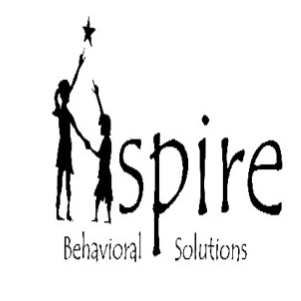What Is a Board-Certified Behavior Analyst?
A board certified behavior analyst is a mental health professional who has achieved graduate-level certification in behavior analysis through the Behavior Analyst Certification Board (BACB). BCBAs are independent practitioners equipped to provide comprehensive behavior-analytic services and supervise other professionals implementing behavioral interventions.
The BCBA certification represents rigorous training in applied behavior analysis (ABA), a scientific approach to understanding and changing behavior. These professionals possess specialized knowledge in developmental disabilities, behavioral assessment, intervention design, and data-driven treatment approaches. Unlike other mental health professionals who may focus primarily on talk therapy or medication management, a BCBA therapist employs systematic, measurable techniques to address behavioral challenges at their root.
Educational Requirements and Expertise
To become a board-certified behavior analyst, professionals must complete extensive educational and practical requirements. The standard pathway requires a master's degree in behavior analysis, psychology, or education, along with specific coursework in behavior analysis principles. Candidates must also complete supervised practical experience hours and pass a comprehensive national examination.
Some behavior analyst therapists pursue doctoral-level training, earning the BCBA-D designation, representing the highest level of certification in the field. This advanced training equips these professionals with additional expertise in research, supervision, and complex case management.
The rigorous certification process ensures that when you work with a BCBA analyst, you're receiving services from someone who has demonstrated mastery of evidence-based behavioral interventions and maintains ongoing professional development through continuing education requirements.
Services Provided by BCBAs
BCBA services encompass a broad range of interventions designed to address various behavioral and developmental challenges. These professionals conduct comprehensive behavioral assessments to identify the underlying causes of problematic behaviors and develop individualized treatment plans based on scientific principles.
A typical behavior analysis service begins with a detailed functional behavior assessment, where the BCBA observes and analyzes behavior patterns, environmental factors, and potential triggers. This assessment forms the foundation for creating targeted interventions that address specific behavioral goals.
Common BCBA services include:
- Behavioral Intervention Planning: BCBAs design comprehensive behavior intervention plans that outline specific strategies for increasing desired behaviors and reducing problematic ones. These plans are highly individualized and based on the unique needs and circumstances of each client.
- Skill Acquisition Programs: Many BCBAs develop programs to teach new skills, ranging from basic daily living activities to complex social and communication skills. These programs use systematic teaching methods with clear measurement criteria for progress.
- Parent and Caregiver Training: BCBAs often provide training to family members and caregivers, teaching them how to implement behavioral strategies consistently across different environments. This training is crucial for ensuring treatment gains generalize beyond therapy sessions.
- Data Collection and Analysis: A hallmark of behavior analysis services is the systematic collection and analysis of data to monitor progress and make informed treatment decisions. BCBAs use various measurement tools to track behavioral changes over time.
- Crisis Intervention: Some BCBAs specialize in addressing severe behavioral challenges that may pose safety risks, developing crisis intervention protocols and safety plans.
Who Can Benefit from BCBA Services?
While BCBAs are often associated with autism spectrum disorder treatment, their expertise extends to various populations and conditions. Individuals with developmental disabilities, intellectual disabilities, attention-deficit/hyperactivity disorder (ADHD), and various behavioral challenges can benefit from behavior analysis services.
BCBAs work with clients across the lifespan, from early childhood through adulthood. Early intervention services for young children often involve BCBAs who focus on developing foundational skills such as communication, social interaction, and adaptive behaviors. For adolescents and adults, BCBA services might address workplace behaviors, independent living skills, or challenging behaviors that interfere with daily functioning.
The versatility of behavioral approaches makes BCBA services valuable for addressing a wide range of mental health concerns, including anxiety-related behaviors, depression symptoms that manifest behaviorally, and various maladaptive coping strategies.
Finding the Right BCBA for Your Needs
When you need to find a BCBA, several factors should guide your selection process. Start by verifying that the practitioner holds current BCBA certification through the BACB website, which maintains a public registry of certified professionals.
Consider the BCBA's specific areas of expertise and experience. Some specialize in particular populations (such as children with autism or adults with developmental disabilities) or specific types of interventions. Ask about their training background, years of experience, and approach to treatment.
Geographic location plays a significant role in accessing BCBA services. Urban areas typically have more behavior analysts available, while rural regions may have limited options. Some BCBAs provide services in multiple settings, including homes, schools, clinics, and community locations. With the expansion of telehealth services, some aspects of BCBA consultation may be available remotely, though hands-on intervention typically requires in-person services.
When interviewing potential providers, inquire about their assessment process, typical treatment duration, family involvement expectations, and how they measure progress. A qualified BCBA should be able to explain their approach clearly and discuss how they will address your specific concerns.
State-by-State Variations and Insurance Coverage
The regulation and insurance coverage of BCBA services varies significantly across states, which affects both availability and accessibility. Some states have robust insurance mandates requiring coverage of ABA services, while others have more limited requirements.
States like California, New York, and Texas have comprehensive autism insurance reform laws that mandate coverage for ABA services provided by BCBAs. These laws typically require insurance companies to cover medically necessary behavioral interventions with minimal restrictions on visit limits or age cutoffs.
Other states may have more limited mandates or rely on federal requirements under the Affordable Care Act. Some states focus primarily on coverage for children with autism, while others extend coverage to adults or individuals with other developmental disabilities.
Before seeking BCBA services, research your state's specific insurance requirements and speak with your insurance provider about coverage details. Many BCBA practices can assist with insurance verification and prior authorization processes.
The licensing and regulatory requirements for BCBAs also vary by state. While BCBA certification is standardized nationally, some states have additional licensing requirements or scope of practice regulations that may affect service delivery.
What to Expect During BCBA Services
When beginning BCBA services, the process typically starts with a comprehensive intake and assessment phase. Your behavior analyst will gather detailed information about current concerns, behavioral history, previous interventions, and family dynamics. This may involve multiple assessment sessions, direct observation in various settings, and interviews with family members or other caregivers.
Following the assessment, the BCBA will develop a comprehensive treatment plan that outlines specific behavioral goals, intervention strategies, and measurement criteria. This plan should be clearly explained to you, with opportunities to ask questions and provide input.
Treatment implementation involves regular sessions where the BCBA works directly with the client or supervises other staff members providing interventions. The frequency and duration of services depend on individual needs and insurance coverage, but many programs involve multiple hours per week over several months or years.
Progress monitoring is a continuous process, with regular data review meetings to assess treatment effectiveness and make necessary adjustments. BCBAs should provide regular progress reports and be available to address concerns or questions that arise during treatment.
The Future of BCBA Services in Mental Health
The field of behavior analysis continues to evolve, with expanding recognition of BCBA expertise in addressing diverse mental health challenges. Recent developments include increased integration of behavioral approaches with other therapeutic modalities, expansion of services to new populations, and growing emphasis on family-centered care.
Technology integration is also shaping the future of behavior analysis services, with digital data collection tools, telehealth platforms, and mobile applications enhancing service delivery and accessibility.
As mental health awareness grows and evidence-based treatment approaches gain recognition, BCBA services are likely to become increasingly integrated into comprehensive mental health care systems.
Making the Decision to Pursue BCBA Services
Choosing to work with a board certified behavior analyst represents a commitment to evidence-based, systematic approaches to behavioral change. These services are particularly valuable when traditional talk therapy approaches have been insufficient or when behavioral challenges significantly impact daily functioning.
Consider BCBA services if you or a family member experiences persistent behavioral challenges, needs skill development support, or would benefit from systematic approaches to behavior change. The data-driven nature of behavioral interventions provides clear measures of progress and accountability that many families find reassuring.
Remember that finding the right BCBA may take time, and treatment typically requires patience and consistency. However, the systematic, scientific approach employed by board-certified behavior analysts offers a powerful tool for creating meaningful, lasting behavioral changes that can significantly improve quality of life.













